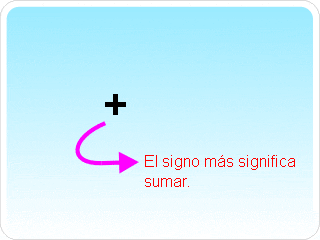
To express that everything is going really well, and there is no need to give more details.Ī variant of estoy bien is todo bien (all good). So you are not giving away a lot of information, but good enough to not use the same answer “Estoy bien”.

Estoy mas o menos in english how to#
Replying in formal situationsįirst, I am going to teach you how to reply in formal situations, that is, replying to people who are not your friends or to whom you don’t need to give a lot of information about “ el día terrible” (terrible day) that you just had: This article has three sections: respuestas formales (formal answers), respuestas informales (informal answers) and respuestas a la mexicana (Mexican answers), so I advise you to stay until the end of this video if you want to hear how Mexican natives express themselves. For that reason, I think that this video is muy importante (very important) for you to start growing your knowledge of chunks. Always replying with the same “Estoy bien, ¿y tú?” is boring!Īlways replying with the same “ Estoy bien, ¿y tú?” is boring!Įstoy bien, ¡ gracias! ¿Y tú? (I am fine, thank you! And you?) This reminds me about the way we used to reply to our English teacher every time s/he would come into class saying “Good morning! How are you?” And the whole salón de clases (classroom) would reply as a choir at the same time “Fine, and you?”.īut honestamente (honestly), this is how they teach us, but in real life, no contestamos SIEMPRE lo mismo (we don’t always reply the same).Erase "asi, asi" from your vocabulary as a response to how you are doing. If you want to say "so, so" in Spanish, say "mas o menos" or "regular". The true native speaker will probably think, "I don't know what he just said, but that hand tells me he's more or less okay." Like I've always said, if you are abroad and someone says, "Como estas?" You gesture your hand back and forth and say, "Asi, asi". It's amazing that this incorrect and mostly incomprehensible translation has becomes so common among Americans using Spanish and Spanglish speakers. And the ones I've asked about it don't really know what it means. Nonetheless, in all my travels and years in Latin America and Spain, I've never heard a native speaker use it. "Asi, asi" is commonly taught by non-native speakers and probably by heritage speakers like the Spanglish speaking Mexicans out west. "Mas o menos" is, in fact, the correct translation for the English "so, so" or "more or less". "Mas o menos" or "regular" are the correct responses if you are saying "so, so". And as a response to "How are you?" it basically has no meaning. Saying it twice to a true native speaker from Latin America is the same as saying "like that, like that".

"Asi" means "like that" or "so" as in "that way". Of course there are times when the two are relatively interchangeable such as if someone were to ask you, "Do you feel good today?" Are you feeling like the day is tolerable/acceptable, or are you feeling as though the day is going well, more or less? In this case, both would be possible to use although with subtly different implications in meaning.Īll the comments here are wrong. Más o menos, then, would be an indication of the amount or quantity of something whereas, así así would have more to do with the quality of something.įor example, if you ask somebody, "do you get off of work in an hour" it would fit better to say más o menos because you could answer this question with "more or less," but it wouldn't make as much sense to answer this question with "mediocre, acceptably, tolerably, etc.". Más o menos means "approximately" or "around about"Īsí así means "mediocre" or "moderately", "acceptably", "tolerably" Más o menos significa de manera aproximada They're not exactly the same, as qfreed and Madh4tter said above.


 0 kommentar(er)
0 kommentar(er)
